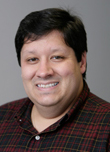Medicine from the heart . . . more from Chris Garofalo
April 11, 2013
Christopher Garofalo, MD, Hahnemann Family Health Center residency graduate and current community doctor in North and South Attleboro, has written about his experience with a difficult patient. When he submitted the story, he wrote: “The message is that sometimes doing right by our patients means they are not happy with us and successes are not always successful for all parties involved.” There are mixed successes in this tale but in the end, the primary care doctor did what he thought was right for the patient and can feel satisfied with that; and the patient's health ultimately improved through tough love, and we all can feel good about that.—Hugh Silk, MD
All's well that ends well
 Last week, at the end of Stacy’s visit for her work stress she said, “I don't think he's coming back to see you, you know.”
Last week, at the end of Stacy’s visit for her work stress she said, “I don't think he's coming back to see you, you know.”
The “he” was her longtime boyfriend, Mark whom I had cared for starting over a decade ago. He smoked and drank too much and there were hints of psychiatric problems but nothing was overt. He dropped off my schedule for many years but about five years ago she told me he was having psychiatric problems and asked if I would “take him back?”
I told her I would and during his visit he told me that he had survived childhood abuse and was now having worsening depression and anxiety around this. He had been on Haldol and lithium in the distant past but wanted no part of medication now. He had decreased alcohol significantly and stopped smoking pot. We discussed him seeing a psychiatrist, but he was not ready. I channeled Dr. Sandy Blount and congratulated him for coming in and beginning to address his issues in a positive way. Three weeks later Mark was at the ED on a Section 12 and awaiting a psychiatric bed after being found wandering the streets talking about ways to “stop the voices in my head.”
I didn't hear much about him after this despite seeing Stacy for routine visits. Then one year ago he came in for an urgent visit with psychosis and mania as he hadn't slept in 10 days, felt like he had an abundance of energy, noted “that the people on the TV are talking to me” and “the government is pointing waves at us.” He had driven to the office but was clearly in no shape to drive home. He was adamant that he did not want to go to the ER as he felt this would lead to being hospitalized. He had been through this before and “they didn't do anything for me.” He just wanted a medication to help him sleep.
Knowing his history allowed me to understand his reluctance to being sent to the hospital. After some bipartisan negotiation we came to an agreement that I would arrange an urgent psychiatric outpatient appointment and he would wait in the office. Despite multiple efforts, the urgent appointment could not be arranged. Why do these crises always seem to occur at 4 p.m. on Friday?
I returned to the exam room and found he had eloped. He was in an acute psychotic and manic crisis and he was dangerous to himself and others, and this conclusion led me to file a Section 12, despite his clearly stated desire to not accept psychiatric treatment.
At some point in our careers most of us have had or will have to deal with the tug of competing interests. We want, need and encourage our patients to seek help when they need it and they trust that we will honor their autonomy. However, this bumps up against our need to keep our patients and, let's face it, others, safe. I called the local ED and police departments to inform them about Mark and faxed them the Section 12.
Within a few hours he was located by one of the police departments, brought to the ED and admitted to a psychiatric service. I have not seen him since but Stacy has updated me intermittently over this past year. He has an established counselor and psychiatrist and is taking medication that controls his psychiatric symptoms and helps him to function well. She also told me that, not surprisingly, he was very unhappy that I filed the Section 12. I have not seen him back in the office, which is not unusual given his past visit patterns.
At the end of her visit last week I asked Stacy to please say hello and tell him I am glad he is doing well. She told me she was grateful I decided to file the Section 12 as he is doing so well now and that she would pass along my sentiment. However, her parting thought summed up what she thought his response would be.
“I don't think he's coming back, you know.”
I replied that was OK because, in the end, he is healthier and this job is not about me. It is about him, whether he comes back or not.
Related link on UMassMedNow:
Medicine from the heart . . . Chris Garofalo
Each Thursday, the Daily Voice showcases selected Thursday Morning Memos, reflective essays about clinical experiences written by faculty, alumni, residents and students of the Department of Family Medicine & Community Health and, occasionally, contributors from other departments. Thursday Morning Memos is UMass Medical School’s homegrown version of narrative medicine, in which the authors process their experiences through writing. To learn more, visit: http://www.umassmed.edu/news/articles/2011/personal_stories.aspx.